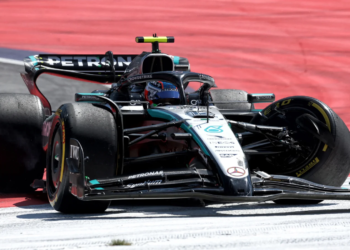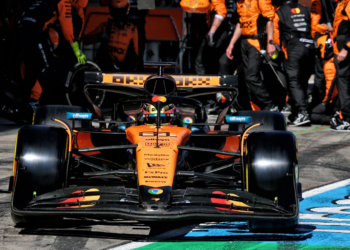Formula 1 has reported significantly improved financial results for the first quarter of 2021 (January to March), compared to the same period last year when its income was seriously impacted by the COVID-19 pandemic.
Total revenue rose from $39 million to $180m for the three-month period, while primary revenue was up 835 per cent to $159m, from just $17m in 2020.
This is however down on 2019’s Q1 figure of $198m, a sign that Formula 1’s recovery is very much an ongoing process.
The increase in revenue drove down operating losses to $33m this year, compared to $137m in 2020.
Last year saw no races take place in the opening quarter, whereas one race took place this year as the season kicked off in late-March in Bahrain, following the postponement of the Australian Grand Prix, which had been set to open the season.
As a result of the improved finances and the return to action, teams shared $44m in payments from Liberty Media, whereas last year they received no income for the January to March period.
Comparing the 2021 and 2020 figures has been skewed slightly by the reclassification of some revenue streams from ‘other’ to ‘primary’.
“During the three months ended March 31 2021, F1 began reclassifying certain components previously reported in other F1 revenue into primary F1 revenue to better align with the way it currently evaluates the business,” it stated in its financial report.
“The more significant components that were reclassified into primary F1 revenue include fees for F1 TV subscriptions, fees for licensing commercial rights for Formula 2 and Formula 3 races, fees for the origination and support of programme footage, fees for broadcast rights for Formula 2 and Formula 3 races, and fees for advertising rights on Formula 1’s digital platforms.
“Following the reclassification, other F1 revenue is primarily comprised of freight and hospitality revenue.”
F1 also received a one-off payment for the cancellation of the Vietnam GP, which was supposed to debut on the calendar last year, but was cancelled because of the pandemic and now looks unlikely to ever return.


![Lando Norris and Oscar Piastri [McLaren] celebrate their 1-2 finish at the 2025 F1 Austrian GP](https://www.motorsportweek.com/wp-content/uploads/2025/06/Lando-Norris-Oscar-Piastri-McLaren-F1-2025-1-120x86.webp)

![Lando Norris and Oscar Piastri [McLaren] celebrate their 1-2 finish at the 2025 F1 Austrian GP](https://www.motorsportweek.com/wp-content/uploads/2025/06/Lando-Norris-Oscar-Piastri-McLaren-F1-2025-1-350x250.webp)


![Lando Norris and Oscar Piastri [McLaren] celebrate their 1-2 finish at the 2025 F1 Austrian GP](https://www.motorsportweek.com/wp-content/uploads/2025/06/Lando-Norris-Oscar-Piastri-McLaren-F1-2025-1-360x180.webp)

